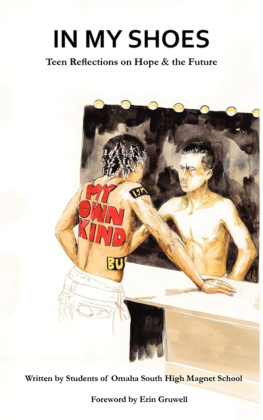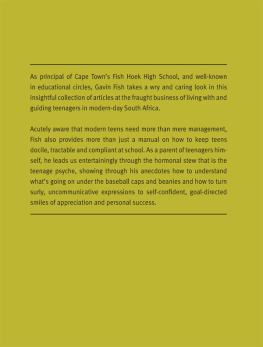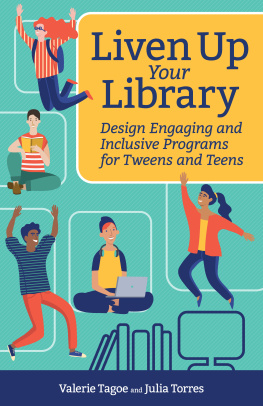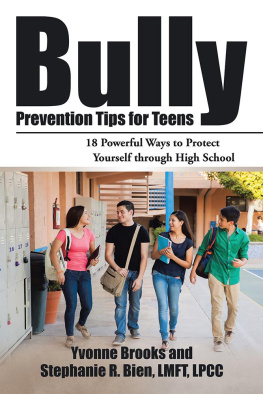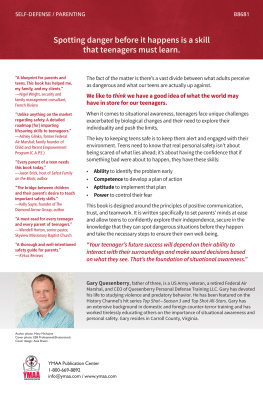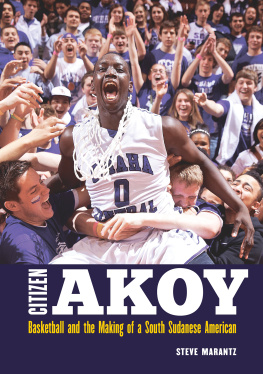
English Teacher, Omaha South High Magnet School
When I first became a teacher, I had no idea how much I would be getting out of myvocation. I thought that I would be the one to impart knowledge and experiences frommy students and that I would enrich their lives somehow, but it turns out that theopposite happens every single day. I have learned that teenagers have a lot to say,a lot to teach me and the rest of the world, and a lot of experiences from whichwe all can learn.
Two years ago, I had a group of students in my sophomore English class who didntparticularly care about reading and writing, and some voiced extreme displeasureat the thought of poetry. Some of the boys pouted and said poetry was for girls.Others wondered what on earth they would get out of reading poetry, much less writingit. I wondered how to get them interested and decided to try bringing in some oftheir own experiences and language in the classroom. I found Hip Hop poetry andthe Spoken Word. I found bilingual poetry, and poetry by adolescents. We read it,listened to it, and watched it being performed by nationally known slam poets.
The result was exciting; students performing in slam poetry jams at the beginningof every class period, there was discussion of poetic terminology, tons of revision,and, last but not least, seventeen students published in a local literary journalcalled Fine Lines which was just what they needed. For some of them, it turned theirlives around and kept them in school. They took writing more seriously knowing thatthere could be a real audience and some kept on writing and being published even after they were done with my class. They received fan mail from people who had readtheir poetry. One student, who had been ready to drop out of school at that time,has been published four times and has even gone on to start a poetry group at thelocal Boys and Girls Club where he teaches younger children how to write their ownpoetry. These students are now seniors, and you have just read their essays.
The greatest moments in my career as an educator come when students take what theyhave learned from the classroom and use it in their own lives. I teach from the perspectiveof social justice. Everything that happens in my classroom is under an umbrella;to facilitate freedom, empowerment, hope, and change in my students lives and intheir communities. Writing plays a huge part in this for many reasons. They use theirjournals as confidantes and places to work out their problems, but they also usetheir writing to inform, entertain, educate, change, and most importantly, hope.
When I met Alli Lopez and heard about the Omaha Young Writers Project during thesummer of 2010, I knew that they would fit right in with what I do with my students.I am only one teacher with over a hundred students, so I am stretched quite thinwhen it comes to time with each student. Having mentors for my students sounded likea dream come true, and publishing their stories in a book was a bonus. I especiallyliked the fact that the students would decide the theme of the book, and that theywould have a say in every step of the process, because I knew that it would givethem a strong sense of empowerment. At the beginning of the semester, I had a conversationwith the students about the book. Together, they came up with the idea of hope asthe central theme of the book and felt very strongly about wanting to show youngerchildren who are living the lives they lived to see that they, too, can overcometroubles in their lives in order to realize the dream of graduating from a high schoolin the United States. They also wanted to change the worlds perception of them,to smash every stereotype around. They wanted to tell their stories.
We began with a guided imagery exercise, during which Alli led the students in imaginingwhat a perfect day would be like in ten years. I watched as some eagerly shared theirdreams of looking at the moon out of a picture window, of being in control of theirown lives, of being happy and free. Others teared up, unable to speak about whatthey had seen. One student wouldnt write anything down and cried when he finallyconfessed that he was afraid to write down his hope because he would be too crushedif things didnt, as usual, go well for him.
There were, of course, some bumps along the road. One student was angry, and feltthat Alli was just another white lady coming to save the bad kids and was indignantbecause he thought that she had chosen us because we are not from a good neighborhood.He changed his mind quite quickly after meeting Alli, however. We had some troublewith technology, but that was sorted out when mentors generously donated flash drivesfor the students. Some students had internal struggles that their mentors helpedresolve.
After the first meeting with the mentors, the students had only positive things tosay. They were amazed that adults from other parts of town actually listened to themopenly and without judgment. The students met with the mentors every Tuesday andThursday during our regular class periods. On Mondays and Wednesdays I reinforcedwriting techniques. Alli provided me with some valuable materials for the studentsabout the writing process from 826 Valencia. The most eye-opening for the studentswere copies of real authors drafts. They understood that even published writersdont start with a pristine, perfect first draft, and this motivated them to keeprevising and editing their own pieces.
The mentors seemed taken with the students right away and were even eager to helpwith more than just the project. One student was given a sewing machine to fosterher talent in fashion design. Other mentors found scholarship information for theirmentees or recommended books for them to read. Little gifts were exchanged, and thestudents became attached to their mentors. We all found ourselves looking forwardto Tuesdays and Thursdays, and there was a palpable sense of disappointment whenthe first Tuesday without mentors arrived.
I noticed some changes in the students as well. Their confidence grew, as did theirsense of identity. They became more goal-oriented and started talking about actuallyrealizing their dreams instead of referring to them as just possibilities. Afterthe writing process was done, we met with Watie White, the artist who was going todo the cover for our book. The students had amazing discussions with him and werenot shy about sharing their ideas. As I watched and listened to them interact withhim, I realized that this was not the same group of students I had started with.They knew their ideas were good. Here was a person they had never met before, andthey trusted him right away not to judge them. And they didnt judge him, either.They spoke in terms of what they wanted people to see and think when they first sawthe book. They were proud of their work and their progress, and they were sure oftheir work as worthy of a large audience.
I am so proud of my students, not only because they have written this book, but alsobecause they are some of the bravest people that I know. They have overcome greatodds and will graduate from high school, most as the first graduates in their families.I know that they will go on to create change in their communities and make theirneighborhoods better places for generations to come.
One of my heroes, an amazing educator named Paolo Freire, in his book Pedagogy ofFreedom stated that,
Its impossible to talk of respect for students for the dignity that is in the processof coming to be, for the identities that are in the process of construction, withouttaking into con sideration the conditions in which they are living and the importanceof the knowledge derived from life experience, which they bring with them to school.I can in no way underestimate such knowledge. Or what is worse, ridicule it (p.62).
Next page
